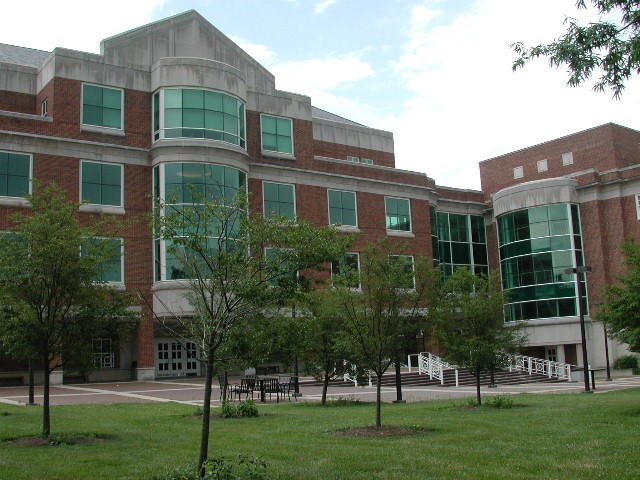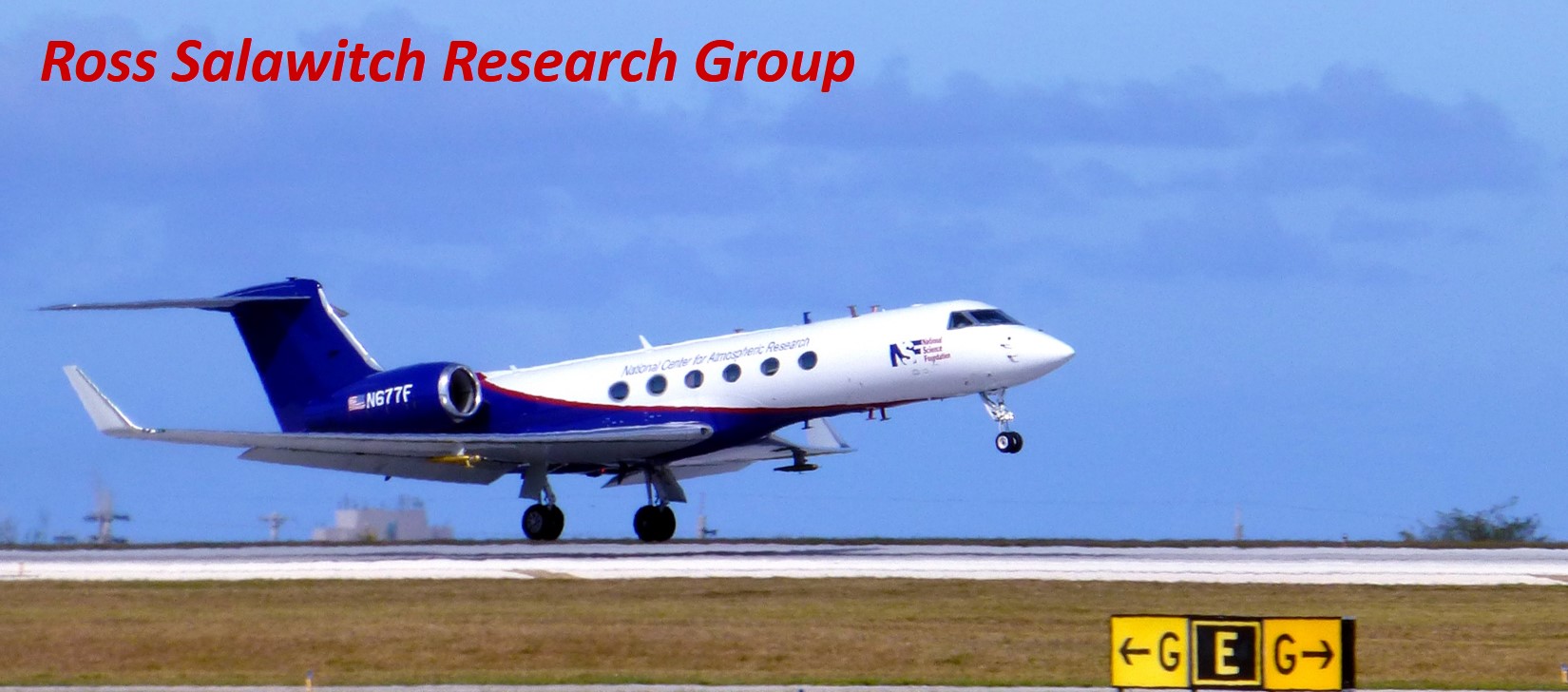In principle I
am able to supervise the research of any graduate student at the
University of Maryland, College Park campus. In practice, it is much
easier to supervise a graduate student enrolled in either:
Department of
Atmospheric and Oceanic Science (AOSC)
Department of Chemistry and Biochemistry (CHEM)
The
requirements for obtaining an advanced degree are administered by these
respective departments and differ in important ways. Prospective students are encouraged to research
information in these links and choose the program that best fits
their background and educational goals. In general, a student with an undergraduate
major of Chemistry or Chemical Engineering may deem CHEM to be a better
fit whereas a student with an undergraduate focus in Mathematics or Computer Science may deem AOSC to be a better fit.
If you apply to one of these programs and are interested in conducting
research with my
group, please send me an email notifying me of your application
(particularly helpful if the phrase "Grad School Application" appears in the
subject line). I generally do not conduct email dialog with prospective
graduate students prior to their acceptance into our graduate program
unless you happen to be visiting campus and would like to stop by
for an introductory meeting. In this case, please send me an email
with "Campus Visit" in the subject line. It is also fine to leave a
short phone message, if you plan a campus visit. A few days
advance notice is always appreciated.
The
research I supervise involves the use and/or development of computational tools
in a Linux environment, using some combination of the FORTRAN,
MATLAB,
and/or IDL programming languages, to quantify the impact of human activity
on atmospheric composition. We work with a myriad of data, but we
do not build the instruments to collect data, nor do we conduct
retrievals of atmospheric composition from satellite radiances . My group interacts
closely with other groups on campus and at national labs, who do build
instruments and/or conduct retrievals of atmospheric composition.
AOSC 652,
typically taught in the Fall, provides an introduction to Numerical Methods in Atmospheric and
Oceanic Science in a Linux environment. No prior programming
experience is needed. Unless
you arrive on campus with an exceptionally strong computational background,
you must successfully complete AOSC 652 before joining my research
group. In other words, please plan to take AOSC 652 your first
semester unless you can demonstrate proficiency in FORTRAN,
and either MATLAB, IDL,
or some other computer language (e.g., Python) that has advanced graphics
capabilities.
AOSC / CHEM 633,
typically taught each Spring, provides the scientific underpinnings in
the fields of Atmospheric Chemistry and Climate of the various research
efforts conducted by our
group. Every graduate student I have supervised at the
University of Maryland has successfully completed this course.
Please plan on taking either AOSC 633 or CHEM 633 (same class, offered
both by AOSC & CHEM) during the Spring of your first semester on campus.
All graduate
students are expected to develop an aptitude for
simulating chemical processes in a computational setting and apply this skill to a
scientific problem of their interest, in the field of
Atmospheric Chemistry and Climate. Examples of the research we
conduct appear on our
research
tab. As of the most recent update to
this website, I have served on 19 doctoral dissertation committees.
In other words, I have had the sincere pleasure of either being the
first, or among the first, to greet a person as "Dr" for the first time.
A list is available under our
dissertation
tab.


